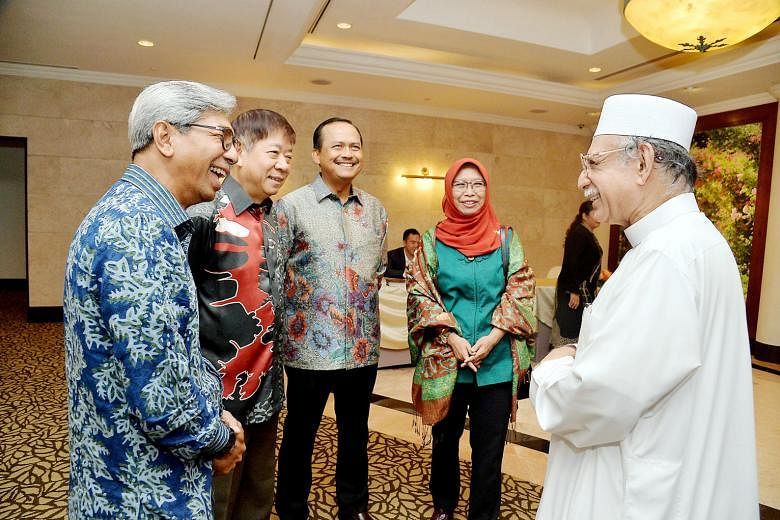Religious leaders in Singapore and Indonesia need to debunk, confront and prevent the spread of destructive extremist ideologies, said Coordinating Minister for Infrastructure and Minister for Transport Khaw Boon Wan.
Mr Khaw was speaking at the closing ceremony of the inaugural Indonesia-Singapore Interfaith and Intercultural Fellowship and Dialogue at Furama Riverfront Hotel yesterday evening.
In his closing speech, Mr Khaw said: "A key challenge of our time is that of extremist ideologies that stoke hatred and fear between communities. They seek to divide societies."
The four-day interfaith exchange programme was part of the RISING50 - Republic of Indonesia and Singapore 50th anniversary - celebrations of bilateral relations between Singapore and Indonesia.
More than 100 faith leaders and activists from both countries engaged in several dialogues and went on visits to faith institutions here, such as the Indian Heritage Centre, Harmony Centre of Muis, Mahakaruna Buddhist Society and Church of St Mary of the Angels.
Indonesian Vice-Minister for Foreign Affairs Abdurrahman Mohammad Fachir, who delivered the keynote address at the event, noted an "alarming rise of violent extremism, radicalisation and xenophobia" worldwide.
He added that religious extremists looked to the youth as well as the disenfranchised as potential recruits.
One of the delegates from Singapore, Monsignor Philip Heng, noted that though marginalised members of society were especially vulnerable to the "distorted views" of extremists, religion could also be used in a positive way to "emphasise the need to promote the love for all human beings".
Governments, religious leaders, academics and young people need to work together to address the problem, said Dr Fachir, adding that faith leaders should speak out against extremism in their own communities.
Programmes like the Indonesia-Singapore Interfaith and Intercultural Fellowship and Dialogue helped address this issue, he said, by underscoring the shared values of "compassion, solidarity, mutual respect and love of humanity" by people of different ethnicities and religions.
Newly appointed Inter-Religious Organisation president K. Kesavapany said that the programme was a "good start" to inter-faith efforts between Indonesia and Singapore.


